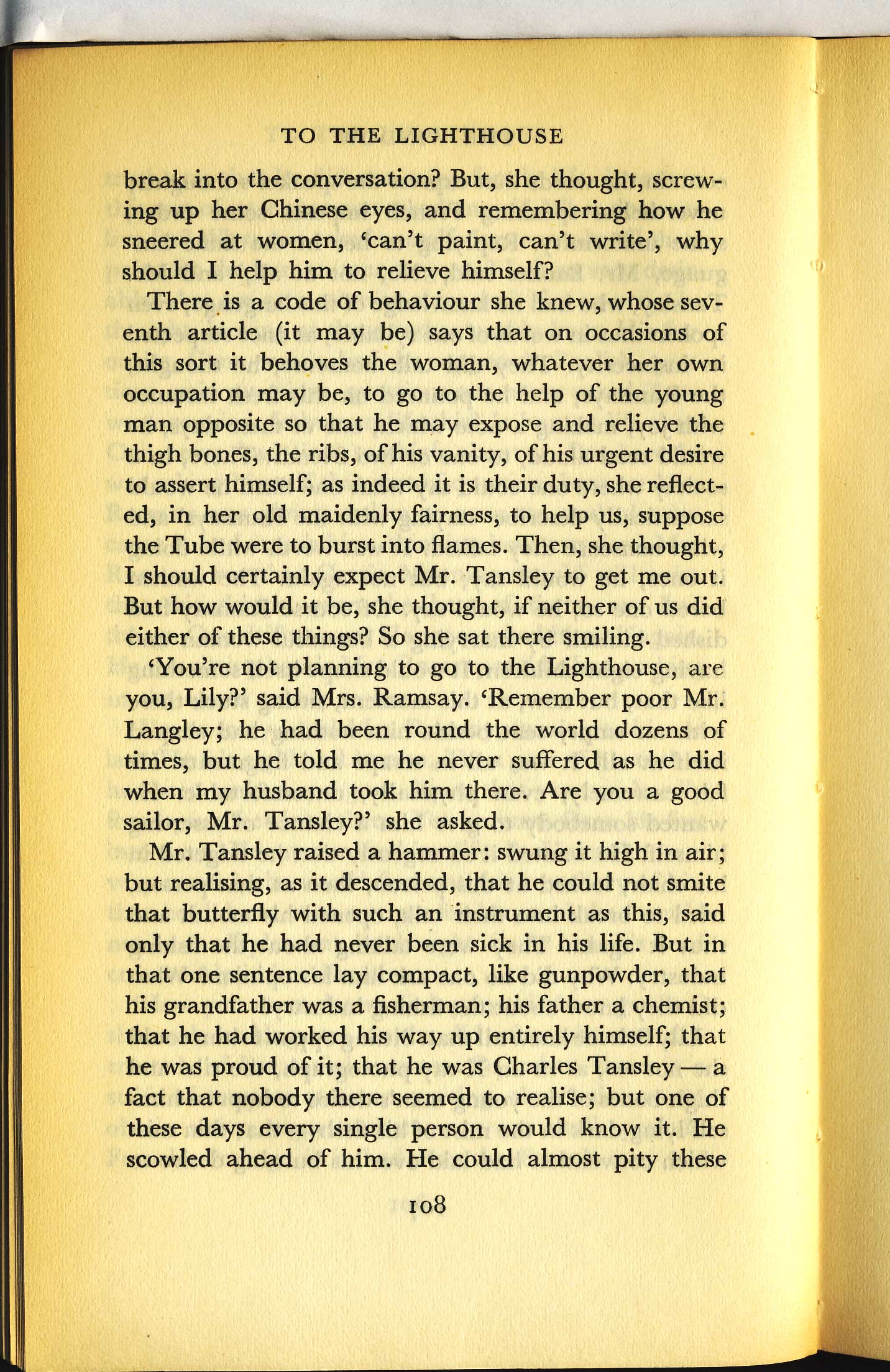
TO THE LIGHTHOUSEbreak into the conversation? But, she thought, screw-ing up her Chinese eyes, and remembering how hesneered at women, ŌĆścanŌĆÖt paint, canŌĆÖt writeŌĆÖ, whyshould I help him to relieve himself?There is a code of behaviour she knew, whose sev-enth article (it may be) says that on occasions ofthis sort it behoves the woman, whatever her ownoccupation may be, to go to the help of the youngman opposite so that he may expose and relieve thethigh bones, the ribs, of his vanity, of his urgent desireto assert himself; as indeed it is their duty, she reflect-ed, in her old maidenly fairness, to help us, supposethe Tube were to burst into flames. Then, she thought,I should certainly expect Mr. Tansley to get me out.But how would it be, she thought, if neither of us dideither of these things? So she sat there smiling.ŌĆśYouŌĆÖre not planning to go to the Lighthouse, areyou, Lily?ŌĆÖ said Mrs. Ramsay. ŌĆśRemember poor Mr.Langley; he had been round the world dozens oftimes, but he told me he never suffered as he didwhen my husband took him there. Are you a goodsailor, Mr. Tansley?ŌĆÖ she asked.Mr. Tansley raised a hammer: swung it high in air;but realising, as it descended, that he could not smitethat butterfly with such an instrument as this, saidonly that he had never been sick in his life. But inthat one sentence lay compact, like gunpowder, thathis grandfather was a fisherman; his father a chemist;that he had worked his way up entirely himself; thathe was proud of it; that he was Charles Tansley ŌĆö afact that nobody there seemed to realise; but one ofthese days every single person would know it. Hescowled ahead of him. He could almost pity these108









